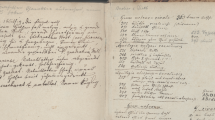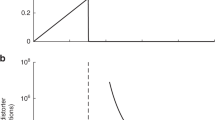Abstract
IN his letter headed “Heredity” published in NATURE of November 25 Sir Archdall Reid has not done justice to himself or to your readers. He endeavours to gain attention once more for a jocose misrepresentation of the meaning of the term “acquired characters,” and in order to do so neglects to mention the fact that in NATURE, vols. lxxxviii. and lxxxix. (1911 and 1912), the matter was very fully treated in letters from himself and others, including two from me (vol. lxxxix., p. 61 and p. 167). It is the simple fact that in those volumes Sir Archdall Reid had his fling in attempting to mystify your readers with a facetious misrepresentation of the proper use of the term “acquired characters.” The fictitious nature of the case presented by him was exposed at that time, and he adds nothing to it to-day. It would be sufficient to refer your readers to that correspondence, the mention of which is avoided by Sir Archdall Reid on the present occasion, were it not difficult for many people to obtain the volumes in which it occurs.
This is a preview of subscription content, access via your institution
Access options
Subscribe to this journal
Receive 51 print issues and online access
$199.00 per year
only $3.90 per issue
Buy this article
- Purchase on Springer Link
- Instant access to full article PDF
Prices may be subject to local taxes which are calculated during checkout
Similar content being viewed by others
Rights and permissions
About this article
Cite this article
LANKESTER, E. Heredity and Acquired Characters. Nature 106, 500–501 (1920). https://doi.org/10.1038/106500a0
Issue Date:
DOI: https://doi.org/10.1038/106500a0
Comments
By submitting a comment you agree to abide by our Terms and Community Guidelines. If you find something abusive or that does not comply with our terms or guidelines please flag it as inappropriate.



